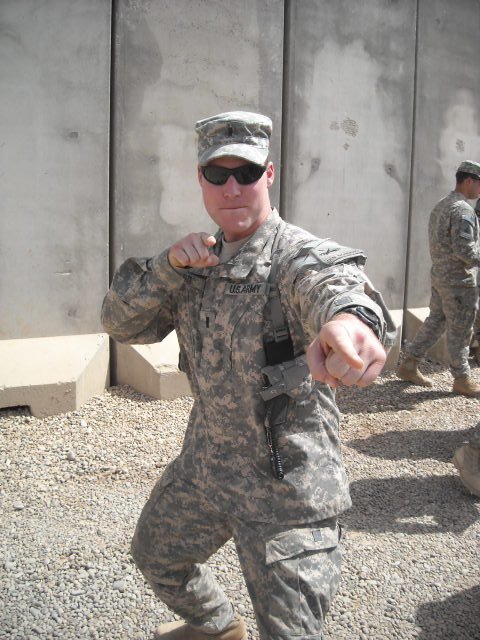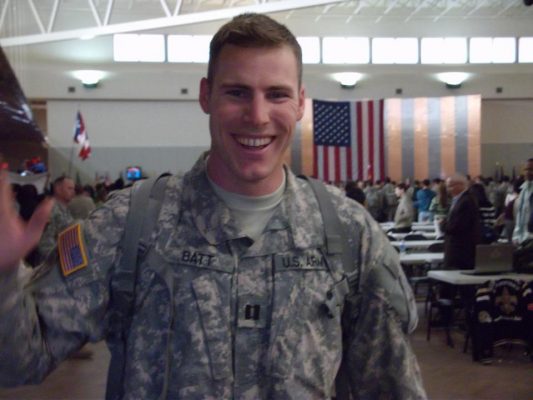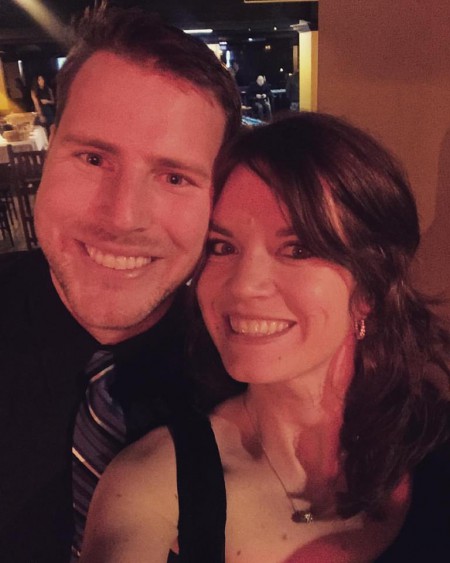Army captain finds path to civilian tech career through Xbox
It was Xbox that first caught Palmer Batt’s eye at a Service Academy Career Conference (SACC) military hiring fair in Washington, D.C. The U.S. Army captain was planning to transition to civilian life, and had come to the event expecting to see defense contractors and logistics businesses eager to recruit service members. But Xbox was a surprise. Batt thought he would spend a few minutes chatting about games with the staff of the Microsoft booth before turning back to the more traditional employers. That chat led him to discover the variety of opportunities at Microsoft and a position as a software engineer within the Globalization and Test Engineering Group at Xbox.

“It was very fortuitous,” Batt says. “Had I not gone to that job fair and stumbled by that table; had I not said, I like your products but I don’t know if I’m a qualified candidate; and had that person not said, let’s chat anyway, then I highly doubt I’d be in the position I’m in right now. So I’m very lucky.”
Today Batt works with testing and quality control for Microsoft’s gaming products. He works with the testing teams to coordinate a wide variety of automated and manual tests, evaluates their outcomes, and reports the results to the game producers and other internal and external partners. The position is a blend of technical execution and project management — a change from his five-and-a-half-year career as an Army officer, where he focused on training and advising local civilian police in Iraq and later in Afghanistan. High school programming classes and some computer engineering work at West Point had helped prepare Batt for the role. But as he learned at the SACC hiring fair, employers are interested in a service member’s passion for learning and willingness to take on new challenges, in addition to specific credentials or technical skills.
Looking back, Batt realizes he’d been giving his troops the same message. Every time a departing soldier came to him with a goal of taking advantage of the GI Bill, employer tuition support, or other resources to attend a university or trade school, Batt was supportive and enthusiastic. Not only can education open new career pathways, he says, it can make it easier to translate existing skills into terms that employers will understand.
“I tell people that if they can explore different educational paths, and get some of those direct skills, that should be the first choice,” Batt says. “And then just go out there and set up as many interviews as you can; just try chatting with people. And don’t be too intimidated by failure. A lot of people are going to say no, but you only need one person to say yes.”

Batt considers himself lucky to have found Microsoft through an employment fair. He’s since learned that other service members don’t have to rely on luck, but can turn to a more formal program for service members to join the tech industry: Microsoft Software & Systems Academy (MSSA). The intensive 18-week program at bases across the country provides tech training, career counseling and mentorship to help service members secure well-paid, career-track jobs in technology. Batt thinks the skills training and the coaching on career essentials, such as interviewing and resume preparation, provide an excellent bridge to civilian life.
“When I was in the military, we had a lot of service members who were transitioning out, and I was super lucky; I had probably the best transition story,” Batt says. “But I saw a lot of people who didn’t really know what the next step was, or wanted to get into a technical field and just didn’t have the experience. So the prospect of having a dedicated, technical training that soldiers can enroll in, and that’s their full-time gig for their last couple of months before they leave the service — I would have recommended all of my soldiers look into that.”
It’s also important for employers to look closely at what military candidates have to offer, Batt points out. This can be challenging because the job titles and descriptions for military roles may not be clear to civilian employers, making it difficult to evaluate a candidate’s qualifications. But the effort of translation can pay off in an outstanding hire who’s prepared to handle all the challenges a new role can present.

“I think the whole point of hiring people is that you have a problem and you want someone to solve it for you,” Batt says. “So when you get to the bottom of it, what’s it going to take? Technical skills are important, and those can be learned, but a lot of the other attributes that will determine whether or not someone is successful are core skills that you learn in the military, and that are tested in the military in a fashion they would never be outside the military.”
Batt is pursuing his own educational development, working on an MBA with the support of the G.I. Bill and Microsoft’s tuition assistance benefit. He’s enjoying his technical work but is curious about other fields such as marketing and business operations. Whatever path he chooses, he’s confident that it runs through Microsoft.
“I really love Microsoft and I want to stay at Microsoft because it’s a great company,” Batt says. “I haven’t decided yet whether I want to stay in this career field for good or maybe shift to a different career field, but I feel very optimistic that I’m in the right company in order to explore these opportunities.”
